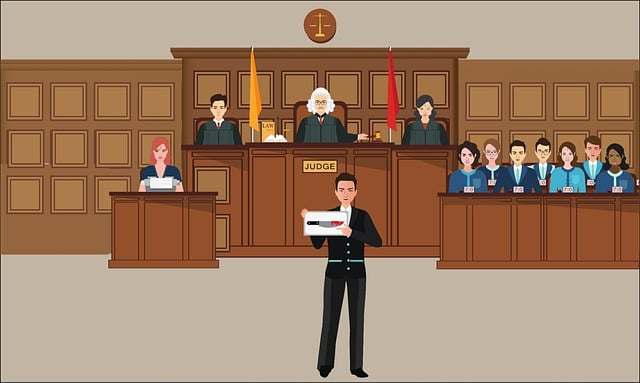Mail wire fraud, involving impersonation and manipulation, causes significant harm. Understanding these scams is crucial for businesses to protect against financial losses and reputational damage. The breach of contract litigation process scrutinizes agreements and actions, with jury trials holding scammers accountable. Consulting legal experts guides companies through evidence collection, demand letters, negotiations, and potential verdicts, ensuring business rights are protected.
Mail wire fraud, a sophisticated form of cybercrime, poses significant risks in our digital age. This article delves into the intricate world of mail wire scams, offering a comprehensive guide on understanding, recognizing, and combating these fraudulent practices. We explore common tactics employed by scammers, dissecting various schemes that target unsuspecting individuals. Furthermore, we elucidate the legal implications, emphasizing breach of contract litigation as a key tool in fighting back against these criminals. By navigating the Breach of Contract Litigation Process Explained, victims can assert their rights and seek remedies effectively.
- Understanding Mail Wire Fraud: Definition and Impact
- Common Schemes and Tactics Used by Scammers
- Legal Implications: Breach of Contract and Litigation
- Navigating the Litigation Process: Rights and Remedies
Understanding Mail Wire Fraud: Definition and Impact

Mail Wire Fraud refers to a sophisticated criminal scheme where individuals or groups impersonate legitimate entities to dupe victims into transferring funds or sensitive information via wire transfers. This fraudulent practice has far-reaching consequences, impacting not just individuals but also businesses and financial institutions. The impact is severe, often leading to significant financial losses, reputational damage, and even breach of contract litigation processes, as victims seek justice and compensation.
Understanding the mechanisms behind mail wire fraud is crucial in the current digital landscape where such scams have become increasingly prevalent across the country. Businesses must be vigilant in protecting themselves from these threats. By staying informed and implementing robust security measures, respective business entities can mitigate risks and avoid falling victim to such schemes, thereby safeguarding their interests during the litigation process should a breach occur.
Common Schemes and Tactics Used by Scammers

Scammers often employ a range of sophisticated tactics to dupe individuals and businesses into falling victim to mail wire frauds. One common scheme involves impersonating legitimate organizations, such as banks or government agencies, through spoofed emails or text messages. These communications usually contain urgent requests for personal information, like login credentials or social security numbers, under the guise of a security threat or account verification. Another prevalent tactic is the use of fake checks or money transfers, where scammers send initial payments that seem too good to be true, asking recipients to wire back a small portion as a ‘processing fee’—a clear breach of contract litigation process if not handled with caution.
Additionally, scammers may leverage psychological manipulation, creating a sense of urgency or fear to pressure victims into quick decisions without proper verification. They might also employ social engineering techniques, using personal information obtained from public records or dark web forums to build trust and make their schemes seem plausible. For his clients facing such issues, understanding these common schemes is the first step in avoiding indictment. Jury trials, as a part of the litigation process, play a crucial role in holding scammers accountable and educating the public on these fraudulent activities.
Legal Implications: Breach of Contract and Litigation

Mail wire fraud cases often have significant legal implications, with breach of contract and litigation being central issues. When individuals or businesses are accused of fraudulent activities involving money transfers, they face potential contractual breaches that can lead to severe consequences. The litigation process involves a thorough examination of agreements, terms, and conditions, as well as the actions taken by all parties involved.
Understanding the legal framework is crucial for both plaintiffs and defendants. A winning challenging defense verdict requires a comprehensive strategy that accounts for the nuances of contract law and the specific circumstances of the case. Achieving extraordinary results often hinges on demonstrating good faith, adhering to contractual obligations, and presenting compelling evidence to refute allegations of fraud. In some instances, a complete dismissal of all charges may be possible if the defense can successfully navigate the litigation process and expose the lack of merit in the claims against them.
Navigating the Litigation Process: Rights and Remedies

Navigating the Breach of Contract Litigation Process Explained
When a breach of contract occurs, understanding the litigation process is crucial for any business involved. The first step is to assess the situation and determine whether legal action is necessary. If a violation of contractual terms is suspected, documenting evidence such as communication records, contracts, and financial transactions can be invaluable. Consulting with a legal professional who specializes in breach of contract cases is essential; they can guide you through the process, ensuring your rights are protected.
The litigation process involves several key stages. Initially, a demand letter is often sent to the breaching party, outlining the violation and seeking resolution. If negotiations fail, filing a lawsuit becomes the next step. During this phase, both parties present their cases before a judge or jury. The court will review the evidence, evaluate arguments, and render a verdict, which may include damages awarded to the aggrieved party. An unprecedented track record of successful breach of contract cases can instill confidence in the ability of legal representatives to safeguard respective business interests.
Mail wire fraud, with its sophisticated tactics and far-reaching impact, highlights the ever-evolving nature of online scams. Understanding these schemes is a powerful tool in prevention and response. As discussed, breach of contract litigation process explained involves a comprehensive approach to addressing mail wire fraud. By recognizing common tactics, individuals can protect themselves, while legal implications emphasize the importance of swift action. Navigating this process equips victims with rights and remedies, ensuring justice and compensation for losses incurred due to these fraudulent activities. Staying informed and proactive is key in combating such crimes in today’s digital landscape.






